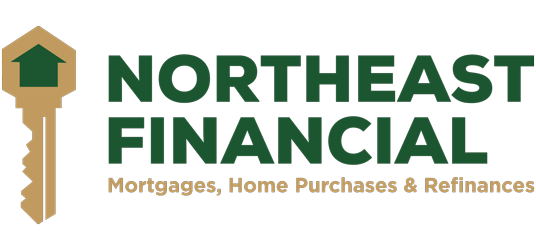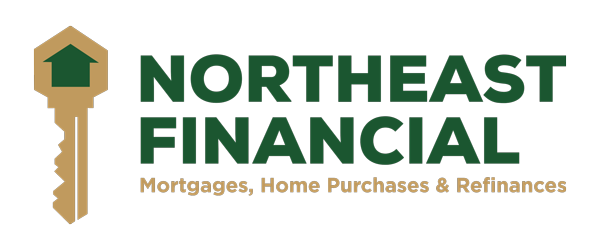
Mortgage Preapproval
What is a Mortgage Preapproval? It is essentially a letter that explains what sales price you qualify for when purchasing a home as well as the amount of financing you qualify for. It is a small yet very important part of your home buying process. Getting a mortgage preapproval can save you time and energy when searching for a home. It would give you a firm idea on what homes you can afford, rather than wasting your time looking for homes you ultimately cannot afford.
How to get Pre-approved?
A mortgage professional like me would talk to you about your home buying needs and what you plan to achieve through financing. Once that is confirmed, the first thing that is required is confirming your income and credit score. You would need to provide the Loan Officer with income documents such as your most recent 30 days of pay stubs, w2s for a salaried or hourly worker, and/or a 1099 for self-employed borrowers.
The next step would be to pull your credit. This will do three things for the Loan Officer. Verify your credit score, view your credit report for anything that might limit your ability to qualify, and verify your monthly obligated debt. Now that your Loan Officer has your debt, he/she may then be able to determine your Debt-to-income ratio. This compares your gross monthly income, according to income documents, to your monthly obligated debt. With that ratio Loan Officers will be able to determine the sales price you’re qualified for financing.
Mortgage Options
Once all this information is given to your Loan Officer and your credit score is verified, he/she may then determine which loan product is most suitable for you. If you are a first time home buyer and/or have not so perfect credit, you may qualify for FHA financing. If you are looking for 100% financing, there are products such as USDA and VA loans. And if you have great credit, typically 680 or higher, you may go with a conventional loan. Keep in mind that because of the different down payment requirements for each product, your qualifications may change. FHA is 3.5% minimum down-payment and conventional is typically 3 – 5% which is up to the Loan Officer to determine, based on your financial position. USDA and VA loans are 100% financing! With VA you would need to be a veteran who has a Certificate of Eligibility for financing. USDA however is for homes located in qualified rural areas in the state and also has income limits.
Required Documents
The mortgage preapproval process is a quick and easy process to achieve. All it takes is a 10 to 20 minute phone call. As the potential borrower, you should be prepared to provide the necessary income documents. Otherwise the mortgage preapproval letter holds no value.
– Last 2 years W2s or 1099s
– 2 months Bank Statements
– 2 years Tax Returns
– Most Recent 30 days of Pay Stubs
What Next After getting Pre-approved?
Once you get a Pre-approved for mortgage, your next step would be to present that letter to a Real Estate Agent. You may now begin your home search! When looking for a home you must always consider the max sales price you are qualified for. Once you find that home, you then make an offer for the property. Once it is accepted, you make a deposit simultaneously. That deposit sits there until you close on the house.
*Keep in mind your deposit on the home is a piece of your down payment funds and not an independent closing cost.*
Purchase and Sales Agreement
Now that your offer is accept, you have what is called a Purchase and Sales Agreement. Also known as a Real Estate Purchase Contract. You then present that to your Loan Officer. And with a completed application your file is ready to be submitted. But first, your Loan Officer must provide you with disclosures for you to sign.
Inspection or Appraisal? What is the difference? Is the Inspection Necessary?
Next you have a choice to get an inspection or not. The appraisal for the most part is different because it serves a different purpose. The inspection is more detailed regarding and points out any issues with the home which the appraiser doesn’t look for. The appraisal on the other hand, is to find out the value of the home and if the home meets certain requirements. These requirements can vary between Mortgage Programs. For example with an FHA Loan, the appraiser is more likely to point out damaged features of the property in order to meet HUD/FHA requirements. As far as an appraisal when applying for a Conventional Mortgage, it is less strict therefore it is less likely to point out those same issues. Additionally, the biggest difference between the two is that an Appraisal is required to be ordered and an Inspection is up to the borrower entirely. It is not required but it is highly recommended.
The Underwriter
So, you have the appraisal report. What’s next? Your Loan Officer will submit that to the Underwriter for review. The underwriter will verify any requests by the appraiser as well as the appraised value. Additionally, the underwriter would confirm you have sufficient cash-to-close in your bank statements as well as verifying your employment history, homeowners insurance for the property, the signing of disclosures, possibly a letter of explanation for past credit inquiries, and many other documents which vary depending on the information included in your application and credit report.
Closing
Finally, you signed your Loan Estimate and Closing Disclosure and all the requested documents are cleared by the underwriter. Now the 3 day wait time is triggered. This means you must wait Three Business days before you may close. At this point you must make sure not to purchase anything expensive as you need to have your check ready for the closing. Last thing any buyer wants in this transaction is to provide a check that bounces. Ultimately, at closing, you have your check ready and all parties tied to the mortgage would have to sign their last set of disclosures. Once complete, the keys to your new home are handed to you and you may now walk freely on the property as the new owners!
The financing process may come off as very overwhelming. However, your Loan Officer can make it smooth sailing for you! But things are never perfect every time. Each borrower brings a different scenario to the table. It is up to your Loan Officer to determine if it can work out for you or not. And if it cannot, he/she will explain to you what the issue with your application was.
Until you get yourself a mortgage preapproval and have a Loan Officer look at your information, do not start shopping for a home! Just give me a call or email me. I cover the entire state of Connecticut and I’d be glad to provide you with a free mortgage consultation and free mortgage preapproval!
Thank you, I look forward to assisting you on your home purchase!


